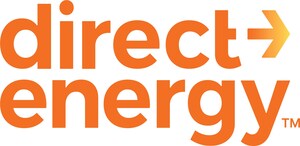Less Than One-Third of New York Households Are Well Prepared for Extreme Weather Conditions
Direct Energy offers tips on keeping bills low despite the extreme heat
NEW YORK, July 8 /PRNewswire/ -- New York is experiencing its first heat wave of 2010 and the heat and humidity will continue across the state through the weekend. While residents in New York battle the record breaking heat, a survey conducted by Direct Energy shows only 29 percent of New York respondents believe their homes are well prepared for extreme weather. While overall preparedness is low, 73 percent of the respondents look for ways to change their energy usage patterns during hot weather conditions to save money.
"The heat wave doesn't necessarily have to equate to higher energy bills for New York residents," said Cory Byzewski, General Manager, Direct Energy. "By implementing some simple, easy changes, consumers can lower their energy usage while not sweating about rising energy costs."
The Direct Energy survey shows that while 84 percent of New York respondents close shades or blinds when sunny to minimize heat from outside coming in, 50 percent were unaware that turning down the temperature on the water heater would save energy during extremely hot weather conditions. Water heaters sometimes come from the factory with high temperature settings, but the U.S. Department of Energy suggests lowering the setting to 120 degrees F which provides comfortable hot water levels for most uses.
Direct Energy meteorologists predict this summer to continue to have warmer than usual temperatures. Direct Energy offers the following tips for homeowners to beat the heat and keep energy bills in check:
Quick Fixes
- Use alternate devices such as microwave ovens or outdoor grills for cooking or reheating food
- Turn off air or close vents in unused rooms and shut the doors.
- Use portable or ceiling fans to maximize air circulation and move the cooled or fresh air throughout the home. Ceiling fan blades should move the air downwards in the summer and upwards in the winter.
- Adjust your thermostat to a warmer setting. The U.S. Department of Energy suggests setting your thermostat as high as comfortably possible in the summer. The smaller the difference between the indoor and outdoor temperatures, the lower your overall cooling bill will be.
- Close curtains or blinds on windows that are receiving direct sunlight to keep the heat out of the house.
- Consider keeping your windows open in the evening and overnight to allow cooler air into your home, and don't forget to turn off your air conditioner. Close the windows during the day to keep the cool air in and the warm air out.
- Reduce overall usage by actively turning off lights or unplugging electronic devices when not in use.
- Keep your garage door closed
- Seal around your doors, windows and air ducts with weather-stripping or caulk.
- Install a programmable thermostat which can automatically lower and raise your home's air temperature when you are at work or sleeping.
- Avoid placing lamps or TV sets near your air-conditioning thermostat. The thermostat senses heat from these appliances, which can cause it to run longer than necessary.
- Clean or replace your system's filter every month to keep your heating and cooling system running smoothly and efficiently. A good rule of thumb is to clean or change your filter each time you pay your electricity bill.
Lasting Fixes
- Ensure cavity walls are filled with insulation, which could help you save money every year.
- Plant trees or shrubs to shade air conditioning units but do not block the airflow. A unit operating in the shade uses 10% less energy than the same one operating in the sun.
- Check the attic insulation levels, or ask a professional to come in to check for you. Attic insulation prevents energy waste during both summer and winter months, top up as needed.
- Don't lose cold air up your chimney! The chimney acts like an open window. Remember to close the chimney flue when the wood-burning fireplace isn't in use.
"By implementing these simple steps, consumers can endure the heat wave without sacrificing any comfort," said Byzewski. "At the end of the day, the less you use, the less you have to pay."
About the survey
The Weather-Related Energy Usage Survey, conducted by Polaris Marketing Research on behalf of Direct Energy was conducted through online surveys of 2,478 consumers in both the United States and Canada. Consumers were screened to ensure they were at least 18 years of age. Online interviews were completed in late March with at least 300 qualified respondents in Connecticut, Michigan, New York, Ohio, Pennsylvania, and Texas in the United States and Alberta and Ontario in Canada. The margin of error for n=300 is at 95 percent confidence level = plus or minus 5.7 percent.
About Direct Energy
Direct Energy is one of North America's largest energy and energy-related services providers with over 5 million residential and commercial customer relationships. Direct Energy provides customers with choice and support in managing their energy costs through a portfolio of innovative products and services. A subsidiary of Centrica plc (LSE: CNA), one of the world's leading integrated energy companies, Direct Energy operates in 20 states and 10 provinces in Canada. To learn more about Direct Energy, visit www.directenergy.com.
SOURCE Direct Energy
WANT YOUR COMPANY'S NEWS FEATURED ON PRNEWSWIRE.COM?
Newsrooms &
Influencers
Digital Media
Outlets
Journalists
Opted In





Share this article